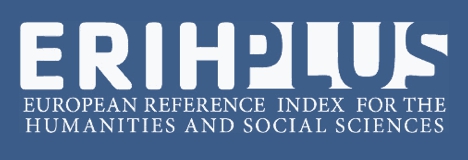ENVIRONMENTAL PSYCHOLOGY AND SPACE SYMBOLISM: AFFECTIVE MAPPING OF THE RELATIONSHIP OF WORKERS IN SOCIAL ASSISTANCE POLICY WITH THEIR WORKPLACES
Abstract
This article presents an investigation that aimed to understand the relations of Social Assistance Policy workers in a city in the state of Ceará with their workplaces. The research is based on contributions from transactional Environmental Psychology and Cultural-Historical Psychology . Affectivity was chosen to elucidate physical-structural and symbolic aspects of human-environmental relations. The Affective Map Generator Instrument was used to measure the workers' Esteem for the Place and analyze their affective images. The results show the prevalence of the image of potentiating and depotentiating contrasts related to the availability of resources and interpersonal relationships. Finally, the work demonstrates a contribution to the management of public policies based on the investigation of human-environmental relations.
References
BARDIN, Laurence. Análise de Conteúdo. Lisboa: Edições 70, 1977.
BOMFIM, Zulmira Áurea Cruz. Cidade e afetividade: estima e construção dos mapas afetivos de Barcelona e São Paulo. Fortaleza: UFC Edições, 2010.
______ et al. Affective maps: validating a dialogue between qualitative and quantitative methods. In: GARCIA-MIRA, Ricardo; DUMITRU, A. (Orgs.), Urban Sustainability: Innovative spaces, vulnerabilities and opportunities. A Coruña: Deputación da Coruña & Instituto de Investigación Xoan Vicente Viqueira, 2014.
BRASIL. Ministério do Desenvolvimento Social e Combate à Fome. CapacitaSUAS: configurando os eixos de mudança. Brasília: Instituto de Estudos Especiais da Pontifícia Universidade Católica de São Paulo, 2008. v. 1.
BRASIL. Orientações Técnicas: Centro de Referência de Assistência Social – CRAS. Brasília: DF: Ministério do Desenvolvimento Social e Combate à Fome, 2009.
______. Política Nacional de Assistência Social (PNAS). Brasília: Ministério do Desenvolvimento Social e Combate à Fome, 2004.
______. Política Nacional de Educação Permanente do SUAS (PNEP/SUAS). Brasília: Ministério do Desenvolvimento Social e Combate à Fome, 2013.
LANE, Tatiana Maurer Silvia. A Psicologia Social e uma nova concepção do homem para a Psicologia. In: LANE, Tatiana Maurer Silvia; CODO, Wanderley. (Org.). Psicologia Social: o Homem Em Movimento. 8ª ed. São Paulo, SP: Editora Brasiliense, 1989.
LIMA, Andersson de Castro. Estima de lugar e território: construção de mapas afetivos de moradores do Timbó em Maracanaú-CE. 2019. 92f. - TCC (graduação) - Universidade Federal do Ceará, Centro de Humanidades, Curso de Psicologia, Fortaleza, 2019.
GARCIA-MIRA, Ricardo. La Aportación de la Psicología Ambiental. In: GARCIA-MIRA, Ricardo. La Ciudad Percibida: Una Psicología ambiental de los Barrios de A Coruña. Coruña: Universidad da Coruña, 1997.
MOSER, Gabriel. Psicologia Ambiental. Estud. psicol. (Natal), Natal, v. 3, n. 1, p. 121-130, Jun 1998. Disponível em
POL, ENRIC. La apropiación del espacio. In: IÑIGUEZ, L: POL, Eric. Cognición, representación y apropiación del espacio. Barcelona, Espanha: Monografies Sócio/ambientais, 1996, p. 45-62.
SAWAIA, Bader. O sofrimento ético-político como categoria de análise da dialética exclusão/inclusão. In SAWAIA, Bader Burihan (Org.). As artimanhas da exclusão: uma análise ético-psicossocial da desigualdade. Petrópolis: Vozes, 2011.
TUAN, Yi-Fu. Topofilia: um estudo da percepção, atitudes e valores do meio ambiente. São Paulo: DIFEL, 1980.
TUAN, Y. F. Espaço e lugar: a perspectiva da experiência. São Paulo: Difel, 1983.

This work is licensed under a Creative Commons Attribution-NonCommercial 4.0 International License.
Policy Proposal for Free Access Journals
Authors who publish in this journal agree to the following terms:
a. Authors retain the copyright and grant the journal the right of first publication, with the work simultaneously licensed under the Creative Commons Attribution License which allows the sharing of the work with acknowledgment of the authorship of the work and initial publication in this journal.
b. Authors are authorized to take additional contracts separately, for non-exclusive distribution of the version of the work published in this journal (eg publish in institutional repository or as a book chapter), with acknowledgment of authorship and initial publication in this journal.
c. Authors are allowed and encouraged to publish and distribute their work online (eg in institutional repositories or on their personal page) at any point before or during the editorial process, as this can generate productive changes, as well as increase the impact and The citation of published work (See The Effect of Free Access).





















